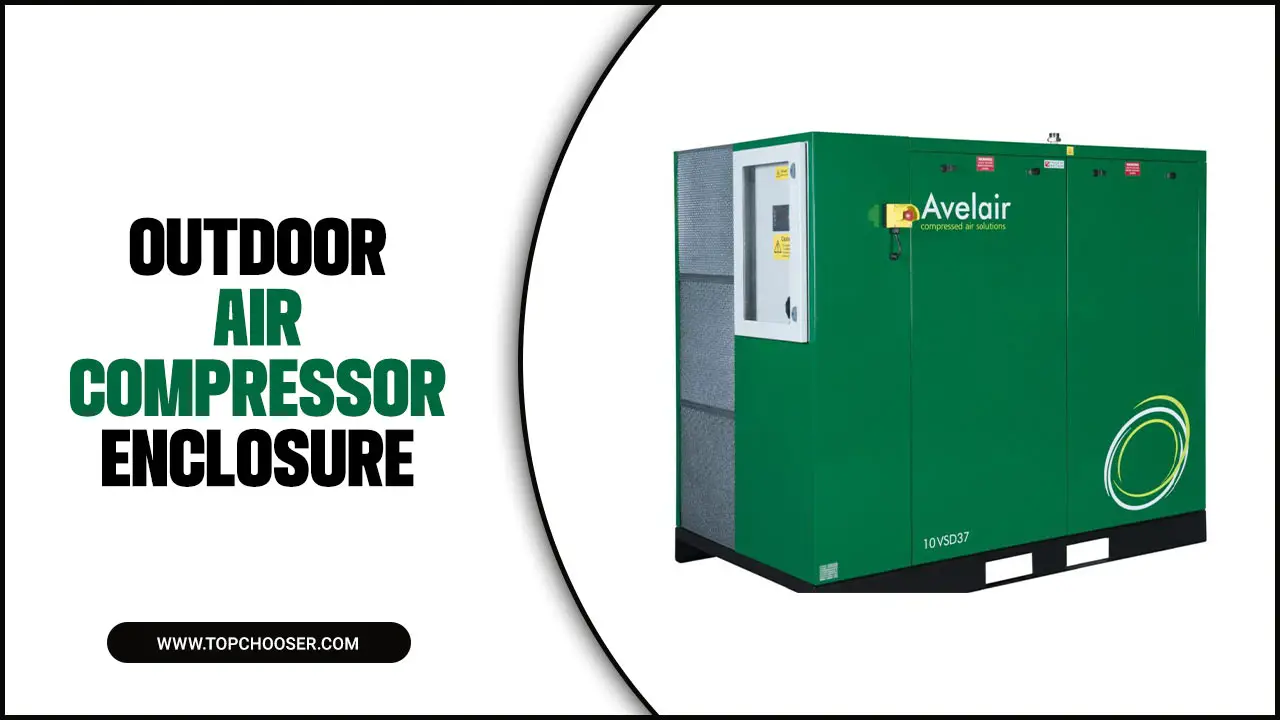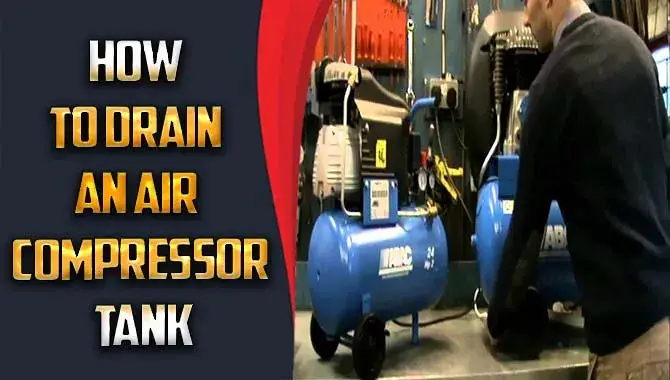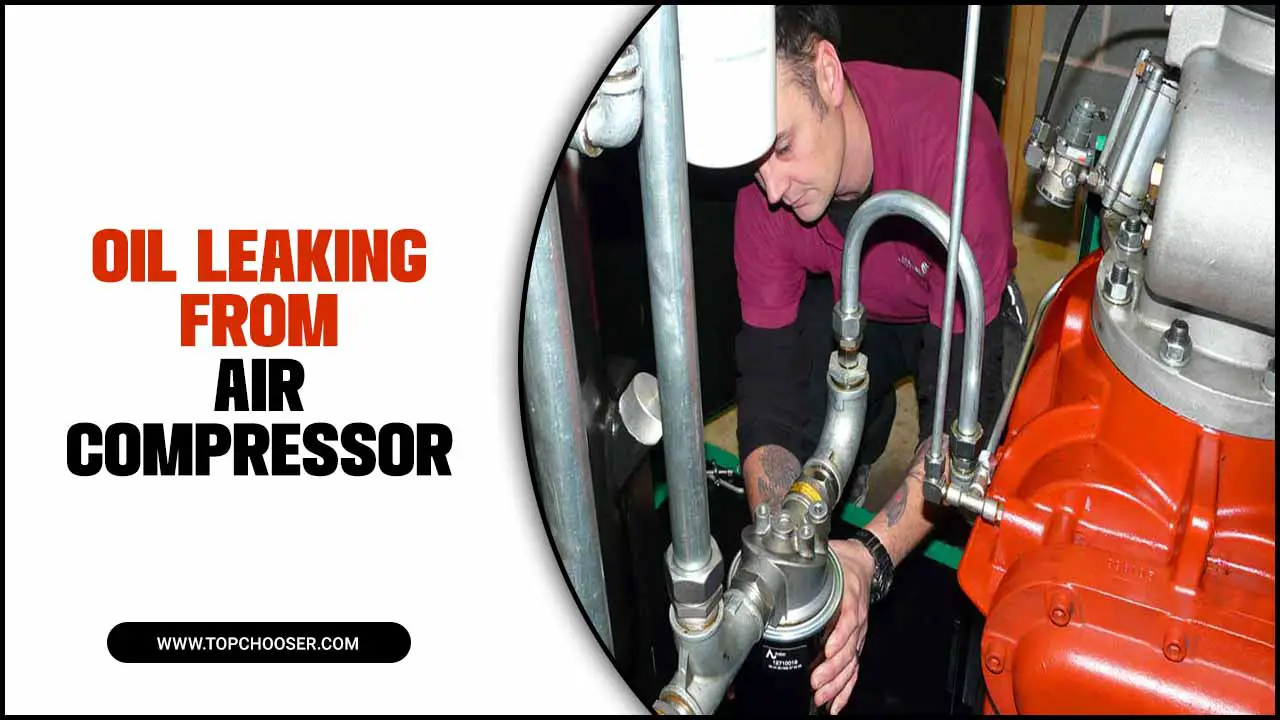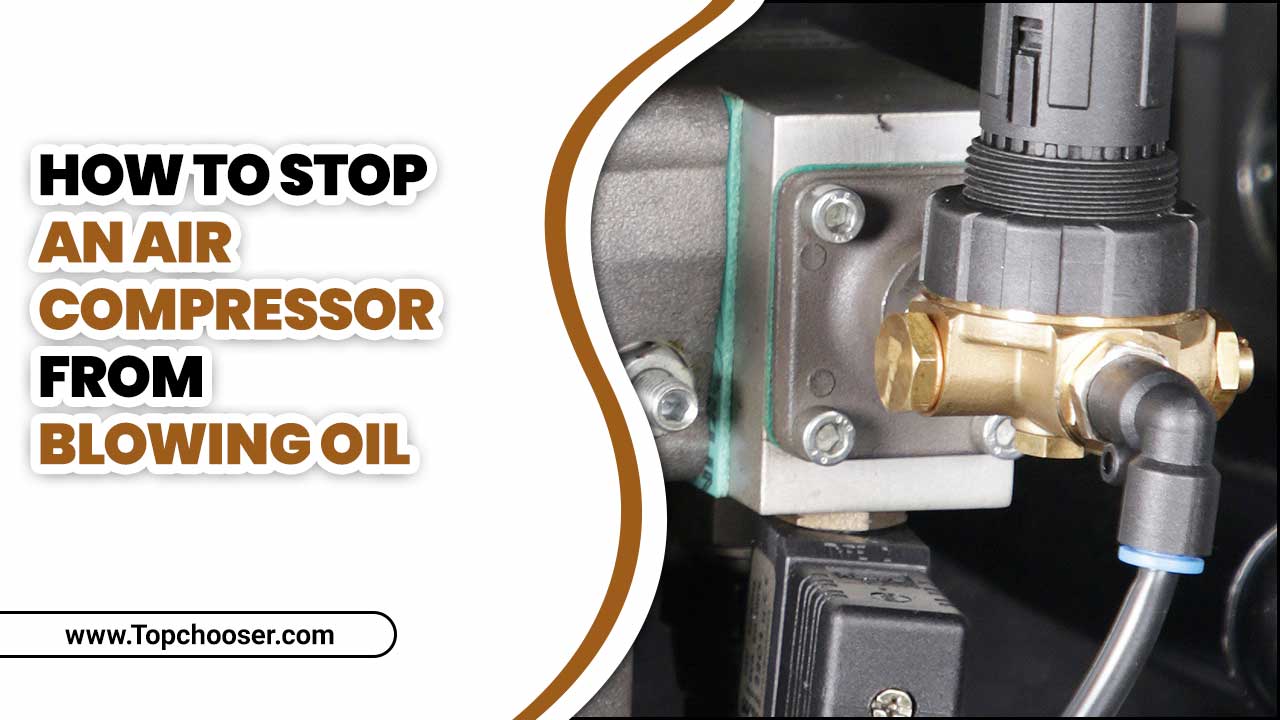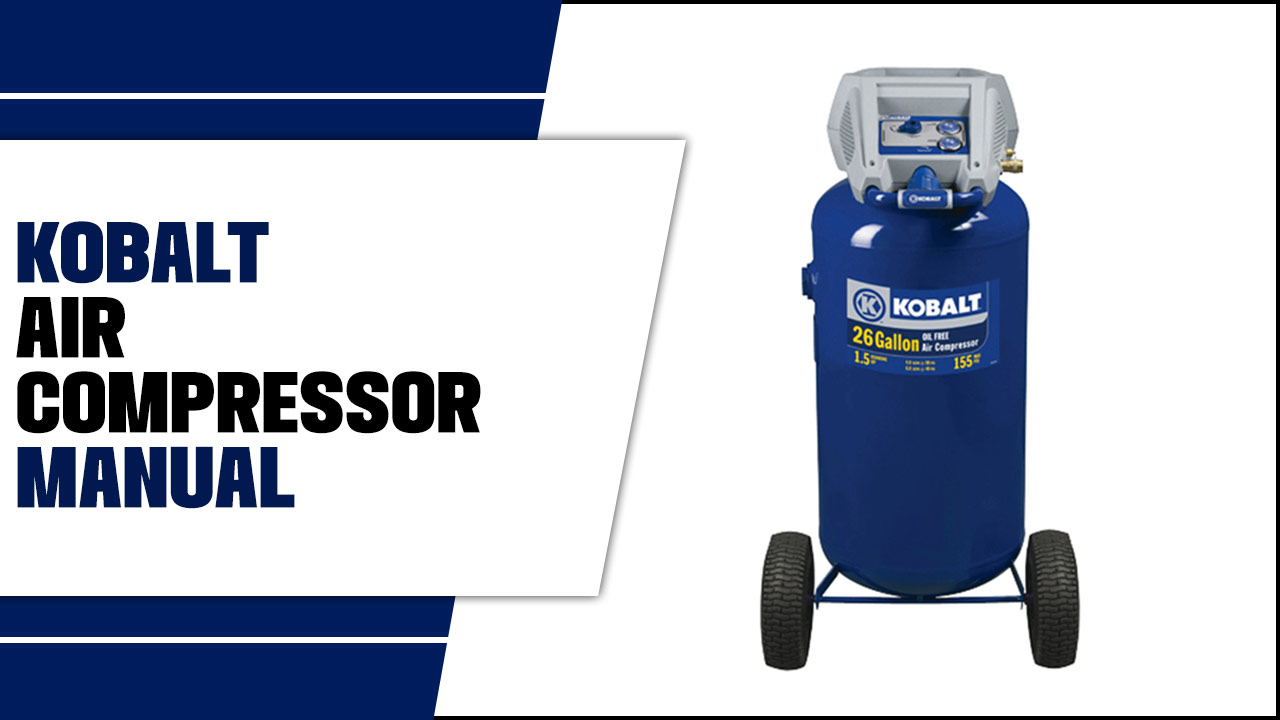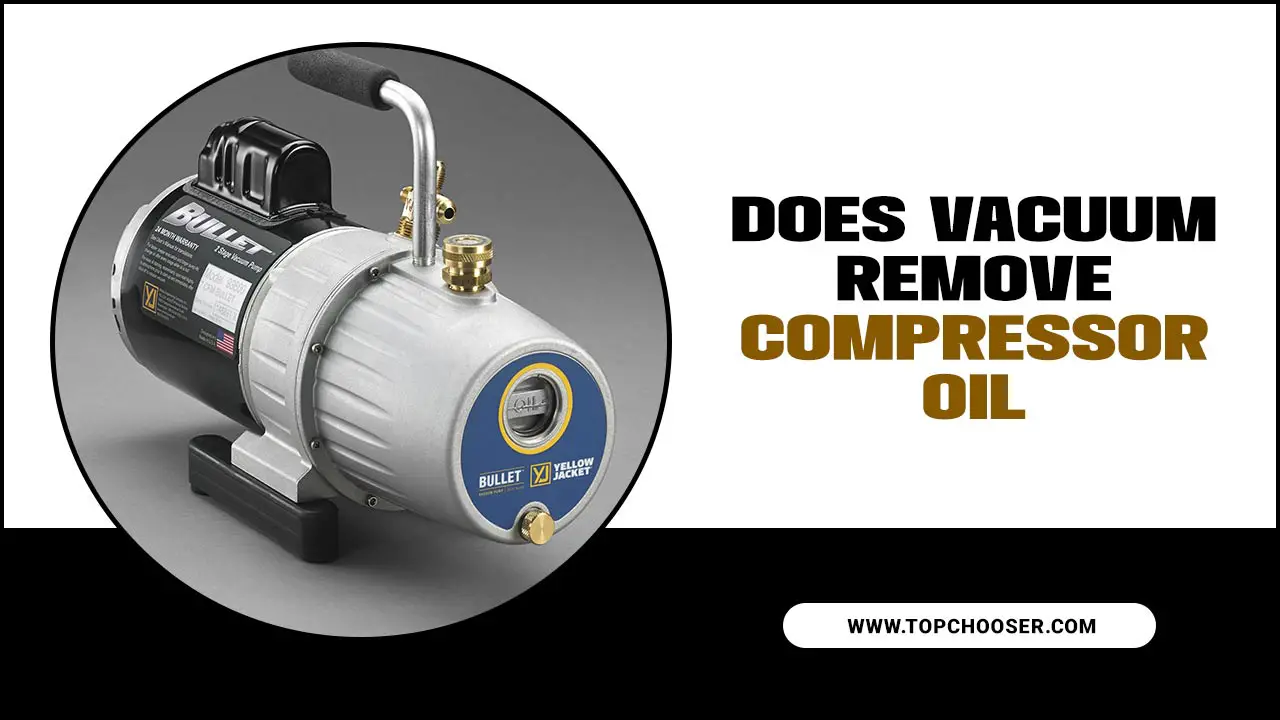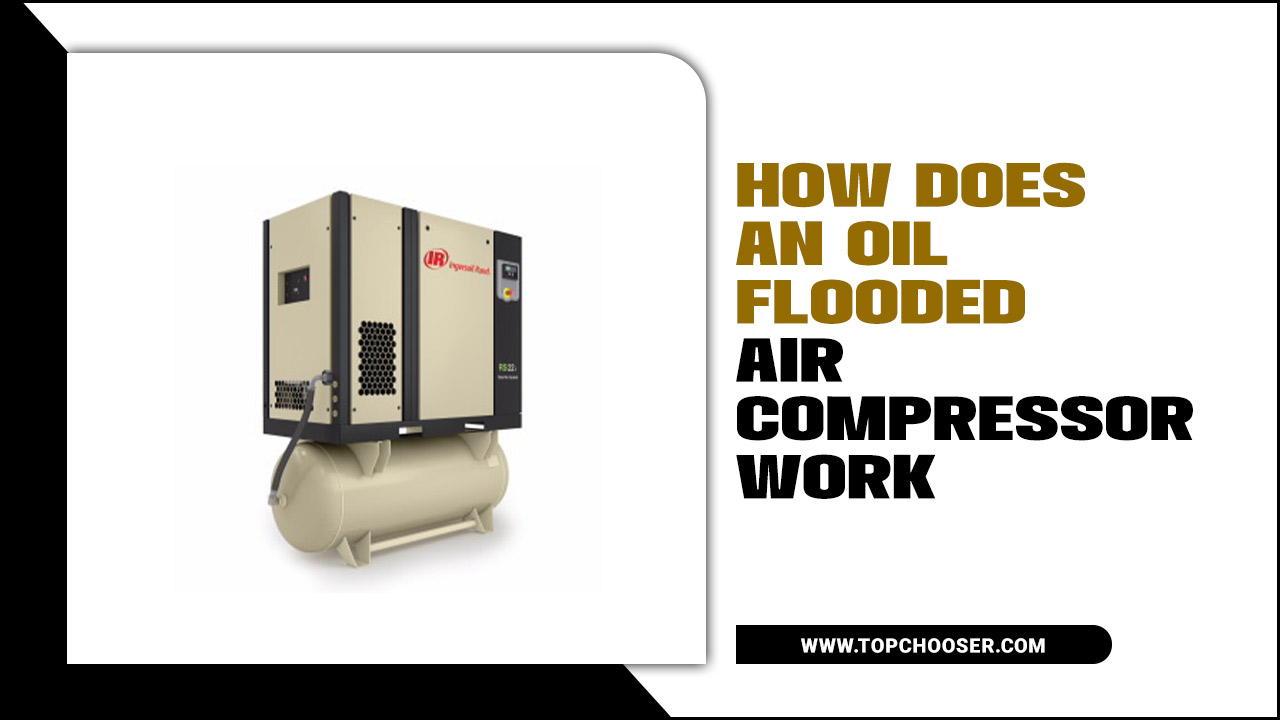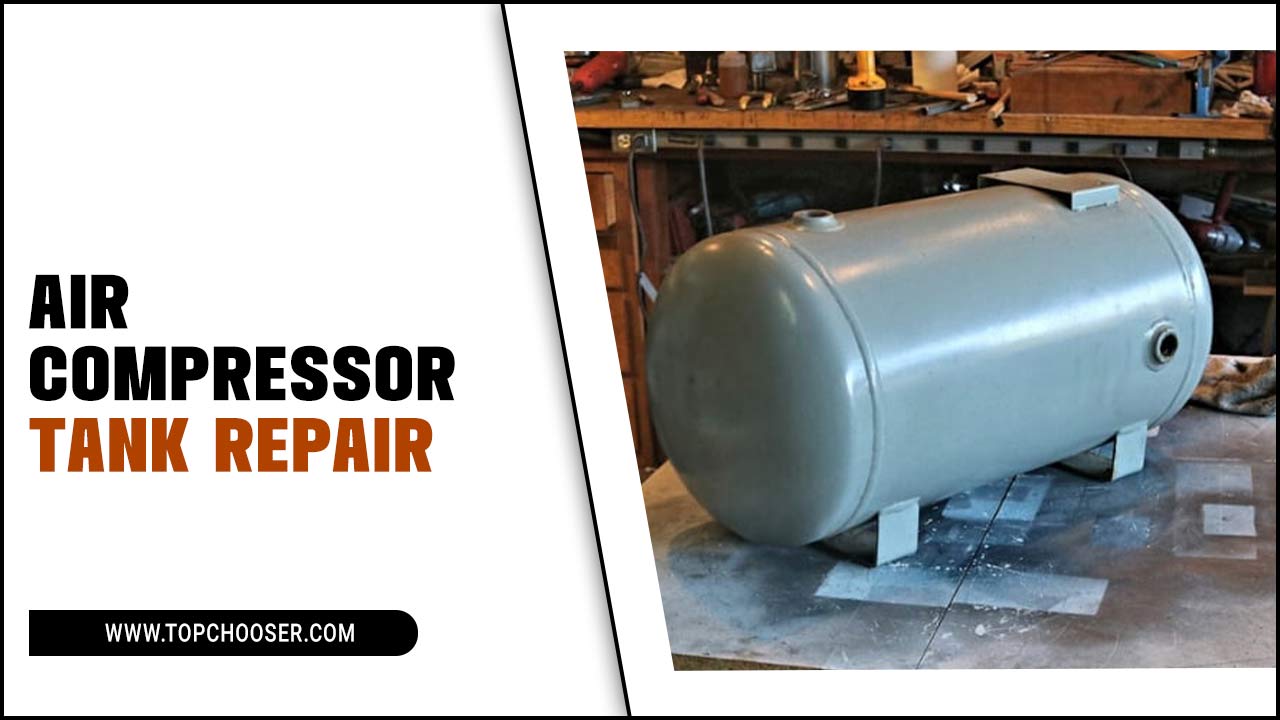An air compressor is a versatile tool that can be used for various tasks, from inflating tires to powering pneumatic tools. It works by compressing air and storing it in a tank until needed.
When the air is released, it can power tools or inflate objects. Air compressors come in various shapes and sizes, with different capacities and features to suit different needs. Having a clean air compressor is essential for its optimal performance and longevity. If you’re a DIY enthusiast or a professional who uses an air compressor regularly, it’s crucial to maintain it properly.
We will provide you with a comprehensive guide on how to clean an air compressor step-by-step. From turning off the compressor and releasing pressure from the air tank to lubricating moving parts, we will cover everything you need to know about cleaning an air compressor.
We will also discuss why cleaning your air compressor is important, the signs of a dirty compressor, and the benefits of cleaning it regularly. So, let’s get started and ensure that your air compressor stays in tip-top shape.
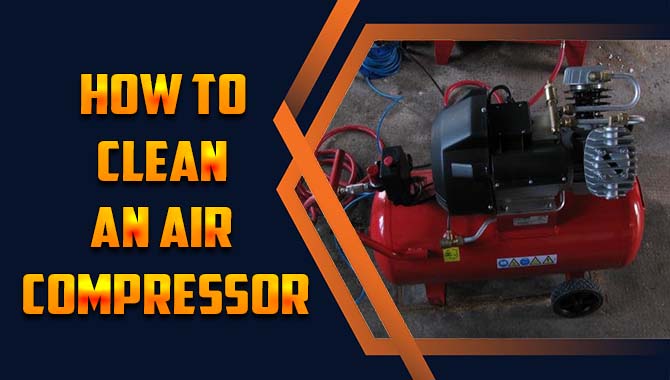
Step-By-Step Guide On How To Clean An Air Compressor For Optimal Performance
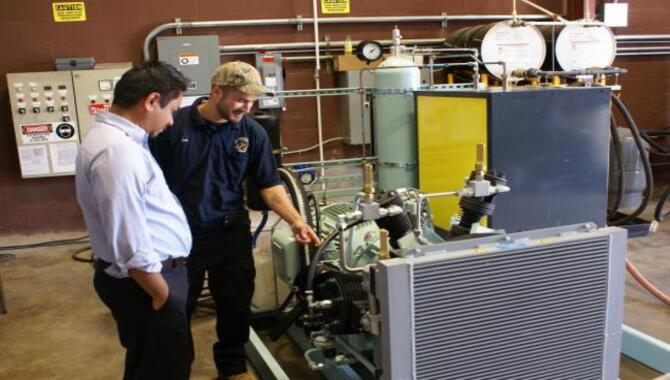
Suppose you’re tired of dealing with poor performance from your compressor system or machinery due to contamination or rust buildup in the compressor tank or hoses. In that case, performing some spring cleaning is a good idea. First, turn off and unplug the machine before wiping its exterior with a damp cloth.
Additionally, remove debris from the air filter and clean intake vents to prevent dust accumulation. Draining moisture via drain valves and using an air dryer to filter out water vapour or sludge is crucial to maintaining good air quality.
Lastly, lubricate bearings and moving parts per the owner’s manual guidelines to keep things running smoothly. Scroll down for derails in steps on how to clean an air compressor for optimal performance.
1. Turn Off The Compressor And Unplug It
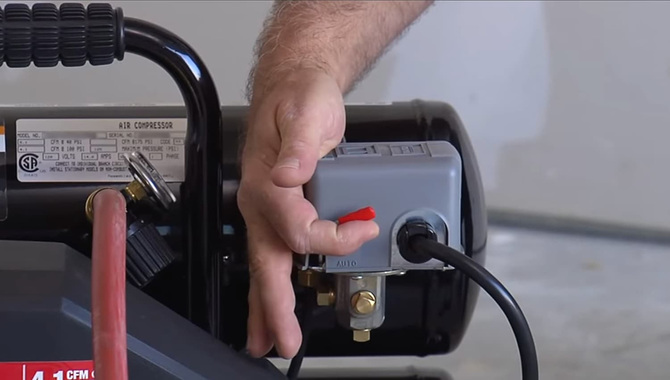
When cleaning an air compressor, safety should always be a top priority. Before cleaning, please turn off the compressor and unplug it from its power source. This will prevent any accidental start-ups or electrical shocks while you are working.
Once the compressor is safely turned off and opened, you can clean the exterior surfaces with a damp cloth. For more thorough cleaning, you may need to disassemble some parts of the compressor, such as the filter and hoses, and clean them separately. Always refer to your manufacturer’s instructions for specific guidance on properly cleaning your particular air compressor model.
2. Release Pressure From The Air Tank
Releasing pressure from the air tank is important in ensuring safety when working with compressed air. Air is compressed and becomes highly pressurized, which can be dangerous if not handled properly. To release pressure from the air tank, turn off the compressor and unplug it from the power source.
Next, locate the pressure relief valve on the air tank and turn it counterclockwise to open it. This will allow the compressed air to escape slowly and safely from the tank. It is important to wait until all pressure has been released before attempting any maintenance or repairs on the tank. By following these simple steps, you can ensure that you are working with compressed air safely and responsibly.
3. Remove The Air Filter And Clean It
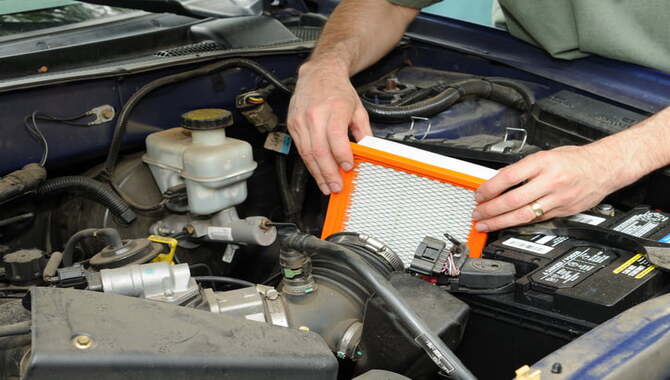
Removing and cleaning the air filter is an important maintenance task that should be performed regularly to keep your air conditioning system functioning properly. The air filter is responsible for trapping dust, debris, and other particles that can negatively impact indoor air quality.
Over time, the filter can become clogged with these particles, which can reduce the efficiency of your air conditioning system and even lead to costly repairs. First, turn off the power to the AC unit to remove and clean the air filter.
Then, locate the filter and remove it from its slot. Use a vacuum cleaner or wash with warm water and mild soap to clean the filter thoroughly. Allow it to dry completely before placing it back in its slot and turning on the power to resume normal operation.
By cleaning your air filter regularly, you’ll ensure that your AC unit runs smoothly and efficiently while improving indoor air quality.
4. Clean The Intake Valves
Cleaning the intake valves of an air compressor is essential to maintaining its efficiency and prolonging its lifespan. Over time, dust and debris can accumulate on the intake valves, restricting airflow and decreasing the compressor’s performance.
First, disconnect the power source and release any remaining pressure in the tank to clean the intake valves. Then, gently remove the intake filter and use a soft-bristled brush to clean the valves and surrounding areas. You may also want to use a compressed air canister to remove stubborn debris.
Once you have finished cleaning, reattach the intake filter and reconnect the power source. Regularly cleaning your air compressor’s intake valves can help ensure that it works efficiently and prevents damage from occurring due to clogged or dirty parts.
5. Loose Debris Or Sediment
Regular maintenance is necessary to maintain optimal performance and prevent contamination from moisture or rust in your compressed air system. One essential step is to clean the air tank by removing any loose debris or sediment and using a cleaning solution designed for air compressors.
Rinse thoroughly and let it dry before reassembling. Neglecting this can increase maintenance costs and downtime due to machinery malfunction caused by corrosion or contaminants. So remember to add this task to your preventative maintenance schedule for good air quality and longevity.
6. Clean The Air Hose And Fittings
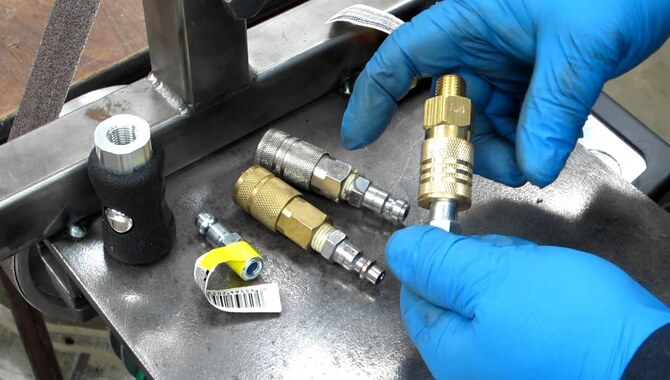
Cleaning your equipment’s air hose and fittings is an important maintenance task that should not be overlooked. Over time, dirt, dust, and other debris can accumulate in the air hose and fittings, which can cause blockages and reduce the efficiency of your equipment.
To clean the air hose and fittings, disconnect them from the kit. Next, use a soft cloth or brush to remove visible dirt or debris. You may need a cleaning solution specifically designed for tougher buildup for air hoses.
Once cleaned, ensure the hose and fittings are completely dry before reattaching them to your equipment. Regularly cleaning your air hose and fittings will help prolong their lifespan and ensure your equipment continues functioning at its best.
7. Lubricate Moving Parts
Lubricating moving parts is an essential part of maintaining any machinery or equipment. Moving improperly lubricated parts can quickly become damaged, leading to costly repairs and even downtime. Lubrication helps reduce friction between moving parts, reducing wear and tear on the machinery.
It also helps dissipate heat, further protecting the machinery from damage. Various lubricants, including oils, greases, and solid fats, are available, each with specific properties and advantages. Regular lubrication is key to ensuring your equipment runs smoothly and efficiently for years. So don’t forget to keep those moving parts well-lubricated.
8. Reassemble The Air Compressor
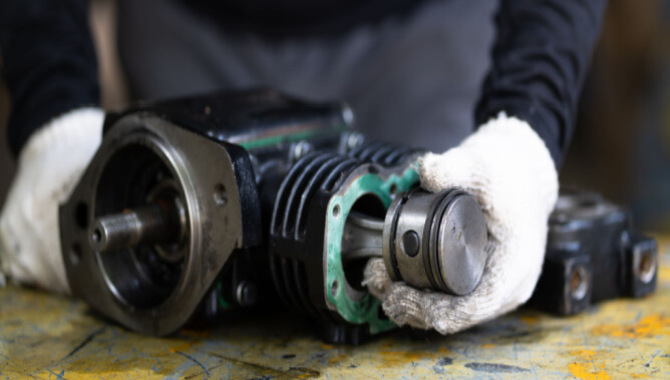
To make sure your air compressor is in optimal condition after cleaning it, properly reassembling it is crucial. Ensure that all components are back in their proper positions and tightened securely. Double-check all connections and fittings to guarantee no compressed air system leaks or loose parts.
After cleaning, test the air compressor before using it again. Regular maintenance will extend your machine’s life, preventing costly repairs and downtime issues while also improving the air quality in your compressor room by eliminating contaminants and reducing humidity levels.
Why A Clean Air Compressor?
Regularly cleaning air compressors is important to ensure optimal performance and longevity. Over time, dirt, dust, and other debris can accumulate on the internal components of the compressor, which can cause it to work less efficiently or even break down.
Regular cleaning removes this buildup and allows the compressor to work at its full capacity. It also helps to prevent contamination of compressed air that could be harmful or cause damage downstream in your system.
A clean air compressor can also help reduce energy consumption by running cooler and more efficiently. Taking the time to clean your air compressor properly will improve its performance and save you money in the long run by preventing costly repairs and replacements.
Importance Of Cleaning Compressor
Cleaning the compressor is an essential task that should not be overlooked. The compressor is the heart of any refrigeration or air conditioning system; without it, the system cannot function properly.
Regular cleaning of the compressor helps ensure that it operates efficiently and effectively, leading to lower energy bills and a longer lifespan for the system. Over time, dust and debris can accumulate on the compressor, which can cause it to overheat and malfunction.
This can lead to costly repairs or even a complete replacement of the entire system. By regularly cleaning the compressor, you can prevent these issues from occurring and save yourself time and money in the long run.
In addition to improving efficiency and preventing breakdowns, cleaning the compressor also helps to maintain indoor air quality. A dirty compressor can lead to poor air circulation, resulting in musty smells or mould growth. By keeping your compressor clean, you can ensure that your system runs smoothly and provides clean, fresh air.
Signs Of A Dirty Air Compressor
If you’re wondering whether your air compressor needs some cleaning, there are a few signs you can look out for. One of the most obvious signs is dust and debris buildup on the exterior of the compressor. This can indicate that dirt and other particles have also accumulated inside the compressor, which can compromise its performance.
Another sign of a dirty air compressor is decreased efficiency or reduced airflow. If your tools or equipment are not performing as well as they should be, it could be due to a clogged air filter or dirty components within the compressor.
Finally, if you hear unusual noises from your air compressor, such as grinding or rattling sounds, it could indicate excessive wear and tear caused by dirty components rubbing against each other. Regular maintenance and cleaning can help prevent these issues and keep your air compressor running smoothly for years to come.
What Are The Benefits Of Cleaning An Air Compressor Regularly?
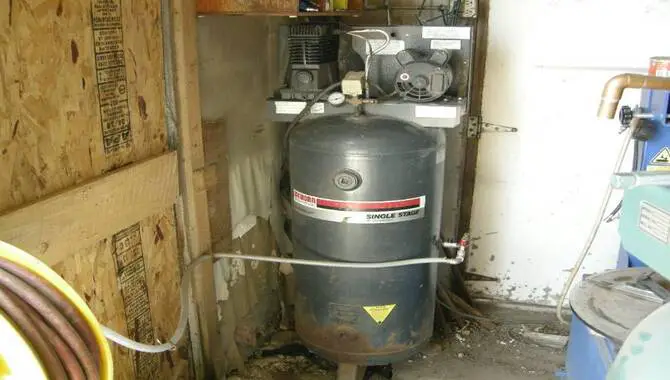
Regular cleaning of an air compressor can provide several benefits, including improved performance, increased longevity, and better air quality. Over time, dirt and debris can accumulate in an air compressor, leading to clogs and decreased efficiency.
Regular cleaning can help prevent these issues by keeping the compressor’s components free from buildup. This can also help extend the compressor’s life by reducing wear and tear on its parts. Additionally, regular cleaning can improve the air quality produced by the compressor by removing contaminants that may be present in the system.
This is particularly important for applications where clean air is essential, such as in medical or industrial settings. In short, regular cleaning of an air compressor is a simple and effective way to ensure optimal performance and longevity while promoting better air quality.
Conclusion
Cleaning your air compressor is an essential maintenance task that can extend the life of your equipment and ensure its optimal performance. Keeping your compressor clean can prevent clogging, corrosion, and other issues that may arise due to dirt and debris buildup.
Follow the steps outlined in this comprehensive guide on how to clean an air compressor to ensure your equipment stays in top condition. By taking care of your air compressor, you’ll enjoy its benefits for years.
Always wear protective gear and follow safety guidelines when working with any machinery. With proper maintenance and cleaning, your air compressor will continue to provide you with reliable and efficient performance for years.
Frequently Asked Questions
[rank_math_rich_snippet id=”s-42fcac88-a5a4-4f5d-a681-ecc2ba3ca745″]

I am passionate about home engineering. I specialize in designing, installing, and maintaining heating, ventilation, and air conditioning systems. My goal is to help people stay comfortable in their homes all year long.

